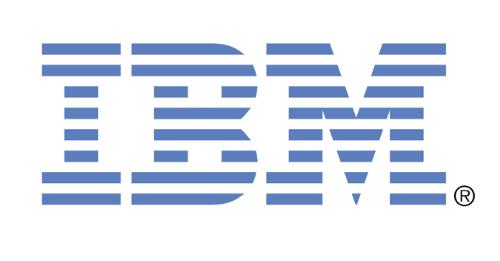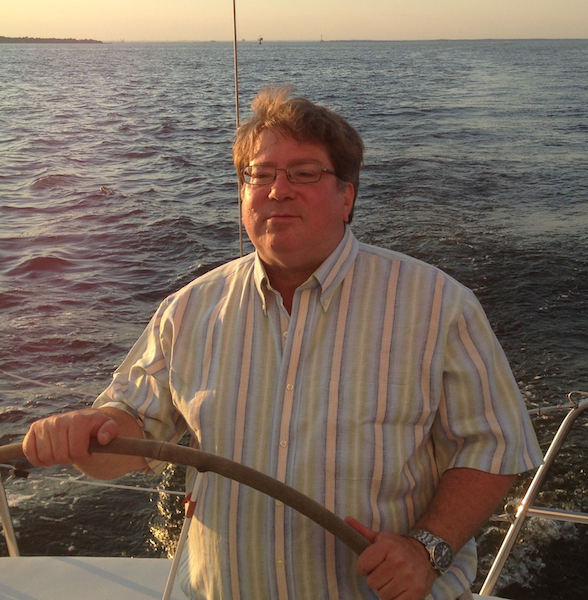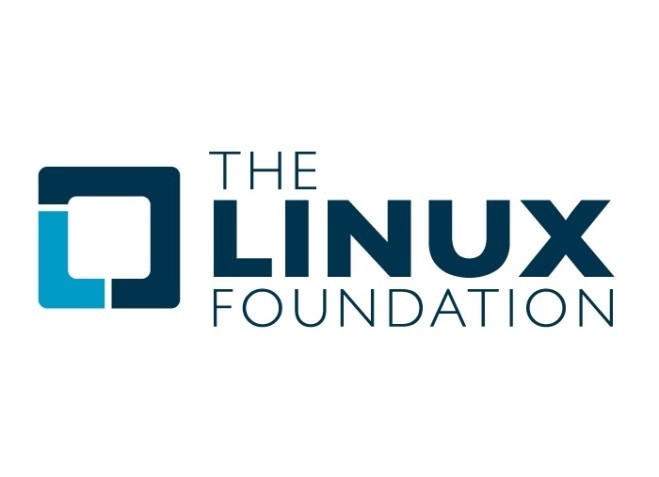 This week I’ve taken vacation time to help my colleagues in Japan and New Zealand with national IT planning. As I often say, the healthcare IT challenges are the same all over the world, but the cultural context is different. In Japan, I spent 2 days in Tokyo and 1 day in Kyoto, lecturing, meeting, and listening to stakeholders. There is a great desire to share data for care coordination and clinical trials/clinical research. Telemedicine/telehealth is increasingly important in an aging Japanese society that has increasing healthcare needs but a limited number of caregivers and few opportunities to increase healthcare budgets. Here are a few of the current issues we discussed...
This week I’ve taken vacation time to help my colleagues in Japan and New Zealand with national IT planning. As I often say, the healthcare IT challenges are the same all over the world, but the cultural context is different. In Japan, I spent 2 days in Tokyo and 1 day in Kyoto, lecturing, meeting, and listening to stakeholders. There is a great desire to share data for care coordination and clinical trials/clinical research. Telemedicine/telehealth is increasingly important in an aging Japanese society that has increasing healthcare needs but a limited number of caregivers and few opportunities to increase healthcare budgets. Here are a few of the current issues we discussed...
Japan
See the following -
Celebrating 25 Years of Open Source at the COSCUP Conference in Taiwan
 Navigating uncharted waters often leads to intriguing discoveries. Imagine immersing yourself in a realm that commemorates a quarter-century of Open Source accomplishment. Invited by Open Source Initiative (OSI) to reflect upon the 25 years of Open Source at COSCUP, a conference in Taiwan that focuses on coders, users and promoters of Open Source, I threw myself into these waters by proposing a review of history that is not unique around the globe, taking my perspective from South America and Europe to Asia, where I had never before ventured. You can read a full transcript of my talk here and check my critical take on the topic. After all, to review is to be able to identify where we failed and to be able to proceed from there.
Navigating uncharted waters often leads to intriguing discoveries. Imagine immersing yourself in a realm that commemorates a quarter-century of Open Source accomplishment. Invited by Open Source Initiative (OSI) to reflect upon the 25 years of Open Source at COSCUP, a conference in Taiwan that focuses on coders, users and promoters of Open Source, I threw myself into these waters by proposing a review of history that is not unique around the globe, taking my perspective from South America and Europe to Asia, where I had never before ventured. You can read a full transcript of my talk here and check my critical take on the topic. After all, to review is to be able to identify where we failed and to be able to proceed from there.
- Login to post comments
Factory Workers in China: A Pyrrhic Victory for a World That Lost Its Conscience
...what does our unyielding appetite for Chinese durable goods mean for the first world conscience?...One only has to look at the overall picture in China to fully understand the magnitude of the human rights problem and why it is unlikely to abate anytime soon...
- Login to post comments
Global Study Finds Majority Believe Traditional Hospitals Will Be Obsolete In The Near Future
A global study was released this morning by the Intel Corporation indicating that around the world people’s health care wants and needs are principally focused on technology and personalization. The “Intel Health Innovation Barometer” found a consistent theme: customized care.
- Login to post comments
Halamka's Health IT Observations from Japan and New Zealand
- Login to post comments
IBM & Ponemon Institute Study: Data Breach Costs Rising, Now $4 million per Incident
 IBM Security today announced the results of a global study analyzing the financial impact of data breaches to a company's bottom line. Sponsored by IBM and conducted by the Ponemon Institute, the study found that the average cost of a data breach for companies surveyed has grown to $4 million, representing a 29 percent increase since 2013...
IBM Security today announced the results of a global study analyzing the financial impact of data breaches to a company's bottom line. Sponsored by IBM and conducted by the Ponemon Institute, the study found that the average cost of a data breach for companies surveyed has grown to $4 million, representing a 29 percent increase since 2013...
- Login to post comments
Insight: Japan Missed Tsunami Wake-Up Call for Change
Three months after Japan's March 11 triple disaster, a long-time expert on the country arrived in Tokyo to research a book he intended to entitle "Rebirth of a Nation." Months later, Richard Samuels is calling his work "The Rhetoric of Crisis." A year after a the huge earthquake, deadly tsunami and the world's worst nuclear disaster in a quarter century jolted the country, it is clear that even a shock of such magnitude failed to snap it out of its economic and political torpor.
- Login to post comments
Japan Was The First To Ratify ACTA. Will They Join TPP Next?
Two of the biggest threats to the Internet are two international agreements: the Trans-Pacific Partnership agreement (TPP) and the Anti-Counterfeiting Trade Agreement (ACTA). [...] With these two agreements, both of which contain intellectual property (IP) provisions that would negatively impact digital rights and innovation, the country that sits at the center of play is Japan. Read More »
- Login to post comments
Japanese Drugmakers Open 'Libraries' In $100 Million Health Project
Five top Japanese drug companies are to open their "libraries" of experimental compounds to scrutiny by scientists hunting new treatments for malaria, tuberculosis and other diseases affecting the world's poor. Read More »
- Login to post comments
Lessons In Openness From Japan's "Business Reinvention"
 In The Business Reinvention of Japan, Ulrike Schaede explores Japan's approach to economic development in the late 20th and early 21st century. Her thesis is that this approach-what she calls an "aggregate niche strategy"-offers important lessons for the West by balancing the pursuit of corporate profit with social stability, economic equality, and social responsibility and sustainability. It's also a case study in the power of open organization principles, which come to life in Schaede's account. I would argue that Japan's "aggregate niche strategy" was successful, in part, because of them. In this review, I'll explore Schaede's argument about Japan's economic development in order to demonstrate how open principles played a role in Japan's "reinvention." In this first part, I'll provide some historical, economic context necessary for understanding Schaede's argument. In the next part, I'll explore in more detail the implications of Japan's strategy and the role open principles clearly played in it.
In The Business Reinvention of Japan, Ulrike Schaede explores Japan's approach to economic development in the late 20th and early 21st century. Her thesis is that this approach-what she calls an "aggregate niche strategy"-offers important lessons for the West by balancing the pursuit of corporate profit with social stability, economic equality, and social responsibility and sustainability. It's also a case study in the power of open organization principles, which come to life in Schaede's account. I would argue that Japan's "aggregate niche strategy" was successful, in part, because of them. In this review, I'll explore Schaede's argument about Japan's economic development in order to demonstrate how open principles played a role in Japan's "reinvention." In this first part, I'll provide some historical, economic context necessary for understanding Schaede's argument. In the next part, I'll explore in more detail the implications of Japan's strategy and the role open principles clearly played in it.
- Login to post comments
Medicine and Public Health in Nuclear War Diplomacy and Response
 The world is not prepared to deal with the devastating effects of a thermonuclear attack, according to Cham Dallas, professor of public health and director of the Institute for Disaster Management at the University of Georgia. Dallas said that the development of a hydrogen bomb by North Korea is a transformative event, especially from the point of view of the medical and public health response to a thermonuclear detonation...
The world is not prepared to deal with the devastating effects of a thermonuclear attack, according to Cham Dallas, professor of public health and director of the Institute for Disaster Management at the University of Georgia. Dallas said that the development of a hydrogen bomb by North Korea is a transformative event, especially from the point of view of the medical and public health response to a thermonuclear detonation...
- Login to post comments
Open Source Thrives in Asia
The [LinuxCon Japan] conference was truly an excellent experience. It’s great to see the tremendous energy around FOSS here in Japan. There’s no question that Asian companies are taking full advantage of the innovation and game-changing opportunities that FOSS creates. Read More »
- Login to post comments
OSEHRA to Hold Kick-Off Meeting for VistA Internationalization Project
 OSEHRA Chairman Seong K. Mun will be holding a kick-off meeting for the recently announced VistA Internationalization project called Plan VI...This is an important project as the open source VistA electronic health record is being adopted internationally at a rapid pace. There are large numbers of VistA deployments in Jordan and India, and great interest in South Korea, Japan, and China. The Internationalization project should accelerate the international adoption of the EHR, ranked as the best hospital-based EHR in the world.
OSEHRA Chairman Seong K. Mun will be holding a kick-off meeting for the recently announced VistA Internationalization project called Plan VI...This is an important project as the open source VistA electronic health record is being adopted internationally at a rapid pace. There are large numbers of VistA deployments in Jordan and India, and great interest in South Korea, Japan, and China. The Internationalization project should accelerate the international adoption of the EHR, ranked as the best hospital-based EHR in the world.
- The Future Is Open
- Login to post comments
Promoting Earthquake Readiness
In Oregon, Washington State and California, an early warning system helps citizens and officials better prepare for and respond to earthquakes. In the early morning hours on August 24, 2014, scientists at UC Berkeley received a “ShakeAlert” – an alarm providing warning of a pending earthquake. Five seconds later, the city of Napa felt a magnitude 6.0 earthquake. That five-second warning was an early success for a broader goal: the creation of an earthquake early warning system that can communicate the size, extent and timing of imminent earthquakes on the West Coast...
- Login to post comments
The Linux Foundation Announces 2017 Events Schedule
 The Linux Foundation, the nonprofit advancing professional open source management for mass collaboration, today announced its 2017 events schedule. Linux Foundation events are where the creators, maintainers and practitioners of the world's most important open source projects meet. Linux Foundation events in 2016 attracted over 20,000 developers, maintainers, sysadmins, thought leaders, business executives and other industry professionals from more than 4,000 organizations across 85 countries...
The Linux Foundation, the nonprofit advancing professional open source management for mass collaboration, today announced its 2017 events schedule. Linux Foundation events are where the creators, maintainers and practitioners of the world's most important open source projects meet. Linux Foundation events in 2016 attracted over 20,000 developers, maintainers, sysadmins, thought leaders, business executives and other industry professionals from more than 4,000 organizations across 85 countries...
- Login to post comments
The Really Big One
 An earthquake will destroy a sizable portion of the coastal Northwest. The question is when. Most people in the United States know just one fault line by name: the San Andreas, which runs nearly the length of California and is perpetually rumored to be on the verge of unleashing “the big one.” That rumor is misleading, no matter what the San Andreas ever does...Just north of the San Andreas, however, lies another fault line. Known as the Cascadia subduction zone, it runs for seven hundred miles off the coast of the Pacific Northwest, beginning near Cape Mendocino, California, continuing along Oregon and Washington, and terminating around Vancouver Island, Canada. The “Cascadia” part of its name comes from the Cascade Range, a chain of volcanic mountains that follow the same course a hundred or so miles inland...
An earthquake will destroy a sizable portion of the coastal Northwest. The question is when. Most people in the United States know just one fault line by name: the San Andreas, which runs nearly the length of California and is perpetually rumored to be on the verge of unleashing “the big one.” That rumor is misleading, no matter what the San Andreas ever does...Just north of the San Andreas, however, lies another fault line. Known as the Cascadia subduction zone, it runs for seven hundred miles off the coast of the Pacific Northwest, beginning near Cape Mendocino, California, continuing along Oregon and Washington, and terminating around Vancouver Island, Canada. The “Cascadia” part of its name comes from the Cascade Range, a chain of volcanic mountains that follow the same course a hundred or so miles inland...
- Login to post comments